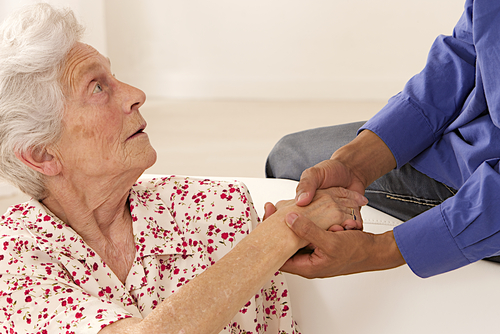
In the Jewish tradition, there’s no honor more sacred than helping to bury someone, because it is a favor that cannot be returned. Also, it’s an honor people often avoid: death is frightening, graves are sad, and loss is painful. Of course, Jewish funeral etiquette is slightly different from secular or Christian American customs. In this post, we’ll explore ten things you should know about attending Jewish funerals.
1. Don’t Stay Away
Obviously, it may be tempting to “have a prior commitment” when there’s a death that occurs within our circle of friends. However, it’s a positive thing to attend funerals, even when you have only a vague relationship with the deceased. Of course, the deceased won’t know you’re there, but to the mourners, it’s a comfort to be in the company of their community, especially their friends.
2. Your Presence is Important
Basically, you don’t need to say too much to mourners. In fact, the less said, the better. Obviously, nothing you say is going to heal their pain. What will help most is your presence at the funeral or at shiva. Sincerely express your condolences if you must, but in Jewish tradition, there’s no need to say anything at all unless the mourner initiates the conversation. Mostly, what will help is for you to let them know that they have supportive friends at their side.
3. Wear Comfortable Shoes
Dress nicely, but wear sensible shoes if you’re going to the graveside. Cemetery grounds are often extremely plushy, often wet and muddy grass. If it will be difficult to walk in those shoes, they’ll be miserable in a cemetery. You don’t want to be trapped in the mud by very expensive (and ruined) stiletto heels.
4. Keep Behavior Respectful
If you find friends there, just remember that this is a funeral: speak quietly. Once the service begins, be quiet. Turn off your cell phone for the service.
5. Listening
There is very little required of the congregation at a funeral. Your job is simply to be present. There will be a few prayers, some psalms, a eulogy, and traditional prayers, El Maleh Rachamim and the Mourner’s Kaddish. Say “amen” along with the congregation, if you wish. The reward for listening is that you’ll learn things about this person that you didn’t know before. You may hear some wonderful stories.
6. Following Directions
The funeral director will give directions before and after the service. Do whatever he or she prompts you to do: park here, sit there, stand, don’t walk there. Complying with directions is one way to support the mourners and give respect to the dead.
7. Graveside Etiquette
Some funerals move from a chapel to the cemetery, some are held at the monument’s graveside. And, if you don’t know the family well, it’s okay to attend the chapel service, and then skip the graveside service. It’s assumed to be more private. In addition, there will likely be chairs under an awning facing the open grave. Those chairs are for mourners; you do not want to sit in them unless you are a member of the family or disabled.
There will be a few prayers or readings, the casket will lower, and the officiant may assist the family in the ancient custom of shoveling earth into the grave. One or three shovelfuls is typical, and after the family, other attendees may assist. It’s a symbolic way of participating in caring for the body by putting it safely in the earth during burial. Again: follow directions; this is an extremely sensitive time for the family and you don’t want to disrupt the flow of the service.
8. Shiva Customs
There may be an announcement about shiva, the gathering at the home for (traditionally) seven days after the burial. If the family announces specific times, go only at those times. At the shiva house, remember that your presence is what matters. You cannot make their pain go away with words.
Mourners need time and space to mourn, and it is an act of kindness to give them the opportunity to do so. Usually, there’s a short service at the shiva house in the morning and evening. You can linger, but do not overstay: when people start leaving, go. Keep in mind that this is not a party, the mourners are not “entertaining.” Sending or bringing prepared food is a very nice thing to do; when in doubt, send kosher food.
9. Making Donations
Most families will designate a charity to which donations may be made in memory of the dead, and most non-profits are happy to send a card to the mourners telling them about your gift. Like consolation gifts, this is not required, but it is a very nice thing to do. Which brings us to:
10. You Won’t See These:
- Flowers – instead, Jews give donations to a memorial fund.
- An open casket – We don’t look at a dead person unnecessarily, since they cannot look back at us.
- A fancy casket – Traditionally, Jewish caskets are plain, unfinished wood.
- Talk about the afterlife – Most Jews focus on doing good in this life. We don’t know for sure what happens after death, and we tend not to worry about it much. Some think there is an afterlife, some don’t.
Conclusion
Of course, there is much more to learn about Jewish funerals and mourning practice. And at Fox Memorials, helping Long Island’s Jewish community honor their loved ones with magnificent, enduring tributes to their loved ones with monuments is our daily mission. For more information on Fox Memorials or our services, contact us now.